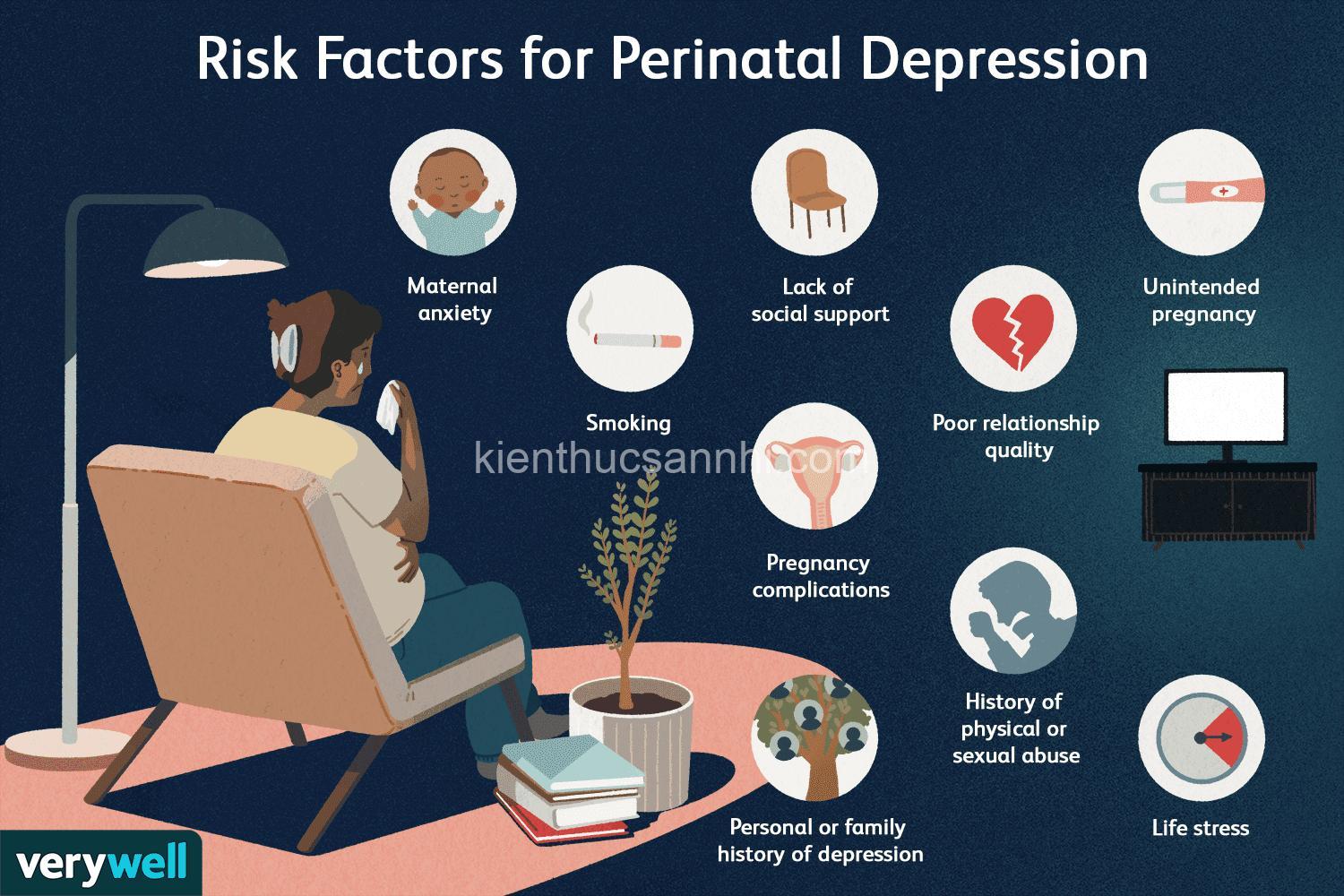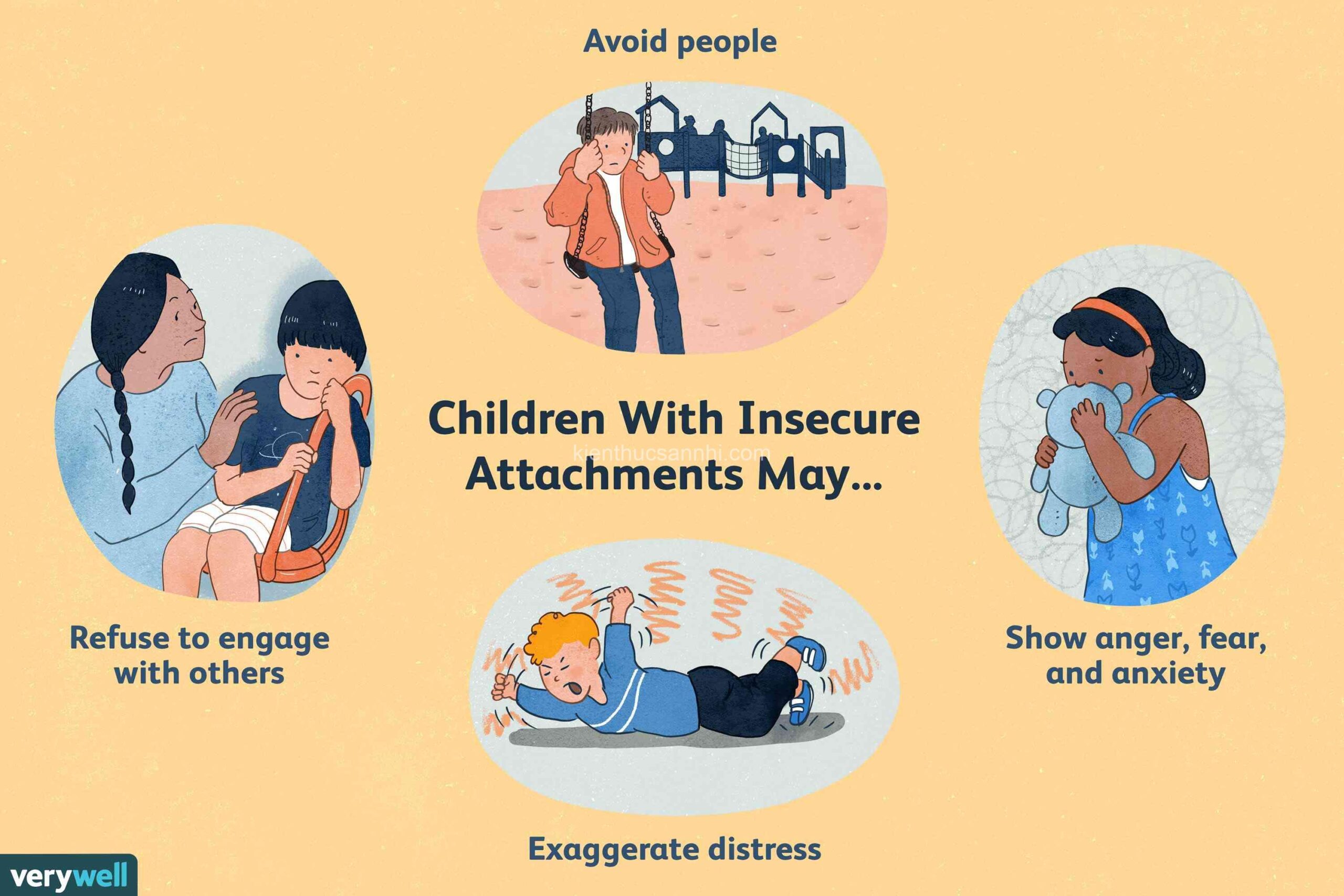
Pregnancy Anxiety & Depression: Signs, Causes & Support. In today’s article, kienthucsannhi.com will explore with you in the most detailed and complete way. See now!
Understanding the Signs and Symptoms of Pregnancy-Related Anxiety and Depression
Pregnancy can be a whirlwind of emotions, and it’s perfectly normal to experience occasional worry or sadness. However, when these feelings become persistent and interfere with your daily life, they might signal pregnancy-related anxiety or depression.
Think about this: while most expectant mothers experience a surge of excitement and anticipation, others might grapple with intense fear, worry, or overwhelming sadness. These are signs that shouldn’t be ignored.
Here’s a closer look at what sets clinical anxiety and depression apart from typical pregnancy worries:
Normal Pregnancy Worries:
- Occasional bouts of anxiety about the baby’s health or childbirth.
- Fleeting moments of sadness or mood swings, especially during hormonal fluctuations.
- Feeling overwhelmed by the changes in your life and body.
Clinical Anxiety and Depression:
- Persistent and intense anxiety that interferes with daily life, sleep, and relationships.
- Overwhelming sadness and hopelessness that lasts for weeks or months.
- Difficulty concentrating, making decisions, or feeling motivated.
- Physical symptoms like fatigue, changes in appetite, and sleep disturbances.
Recognizing the Physical and Emotional Signs:
It’s crucial to pay attention to both your physical and emotional well-being. Look out for these key signs:
Physical Signs:
- Fatigue and low energy: Feeling constantly drained, even after getting enough sleep.
- Changes in appetite and sleep patterns: Experiencing sudden cravings or loss of appetite, and struggling to sleep or sleeping excessively.
- Physical aches and pains: Muscle tension, headaches, or unexplained body aches.
- Nausea and vomiting (beyond normal pregnancy symptoms): Feeling sick to your stomach more often than usual, or experiencing vomiting that’s not related to morning sickness.
- Increased heart rate and breathing: Feeling your heart racing or experiencing shortness of breath, even when you’re resting.
Emotional Signs:
- Persistent sadness, hopelessness, and despair: Feeling like you’re stuck in a dark cloud, with no way out.
- Overwhelming fear, worry, and panic: Experiencing intense anxiety that feels uncontrollable.
- Irritability, anger, and frustration: Feeling easily agitated and snapping at those around you.
- Difficulty concentrating and making decisions: Struggling to focus on tasks or make simple choices.
- Feeling overwhelmed and unable to cope: Feeling like you’re drowning in responsibilities and can’t handle everyday tasks.
- Loss of interest in activities previously enjoyed: Feeling detached from things that used to bring you joy.
- Social withdrawal and isolation: Wanting to avoid social gatherings and spending more time alone.
Behavioral Signs:
- Neglecting personal hygiene and appearance: Not caring about your appearance or basic hygiene.
- Engaging in risky behaviors (e.g., substance abuse): Turning to alcohol or drugs to cope with difficult emotions.
- Difficulty bonding with the baby: Feeling emotionally detached from your growing baby.
- Increased crying and emotional outbursts: Crying more frequently or experiencing sudden emotional outbursts.
- Suicidal thoughts or behaviors: Having thoughts about harming yourself or engaging in actions that could lead to self-harm.
- Difficulty performing daily tasks: Struggling to manage household chores, work, or other responsibilities.
- Changes in eating habits (binge eating or loss of appetite): Experiencing significant shifts in your eating patterns, either overeating or losing your appetite.
Remember, these signs can vary in intensity and frequency, and not everyone will experience all of them. If you notice any of these changes in your emotional or physical well-being, it’s essential to reach out for help.
Common Causes of Pregnancy-Related Anxiety and Depression
It’s important to understand that pregnancy-related anxiety and depression are not your fault. There are numerous factors that can contribute to these conditions, and it’s helpful to be aware of them.
Hormonal Changes:
Pregnancy involves a rollercoaster of hormonal shifts, particularly in the levels of estrogen and progesterone. These fluctuations can directly influence mood, sleep patterns, and energy levels.
Life Events and Stressors:
The transition to motherhood comes with many adjustments, both physically and emotionally. Major life events like moving, financial worries, relationship issues, or changes in work can exacerbate stress levels, increasing the likelihood of anxiety or depression.
Pre-Existing Mental Health Conditions:
Women with a history of anxiety or depression are more likely to experience these conditions during pregnancy. This is because pregnancy can trigger or worsen pre-existing mental health issues.
Understanding Your Individual Triggers:
While these factors are common, the specific triggers for pregnancy-related anxiety and depression can vary greatly from person to person. It’s important to identify what contributes to your own emotional well-being and to seek support when needed.
The Impact of Untreated Anxiety and Depression on Mother and Child
It’s crucial to understand that untreated anxiety and depression during pregnancy can have significant consequences for both the mother and the developing baby.
Impact on Mother:
- Physical health: Untreated anxiety and depression can lead to increased blood pressure, weakened immune system, and difficulty managing physical pain.
- Emotional well-being: These conditions can contribute to feelings of isolation, decreased bonding with the baby, and difficulty enjoying motherhood.
- Relationships: Untreated anxiety and depression can strain relationships with partners, family, and friends, leading to feelings of loneliness and resentment.
Impact on Baby:
- Premature birth: Anxiety and depression during pregnancy can increase the risk of preterm labor, which can lead to serious health complications for the baby.
- Low birth weight: Babies born to mothers with untreated anxiety and depression are more likely to have low birth weight, which can increase the risk of developmental delays and health problems.
- Developmental delays: Infants exposed to maternal anxiety and depression in the womb may experience developmental delays in language, motor skills, and cognitive abilities.
Seeking Help and Treatment Options
Seeking help is a sign of strength and a crucial step towards managing your mental health during pregnancy.
Who to Talk To:
- Your healthcare provider: Your doctor or midwife can provide initial assessment, monitor your progress, and refer you to specialists if needed.
- Mental health professional: A therapist or counselor can provide therapy, support groups, and personalized coping strategies.
Treatment Options:
- Therapy: Cognitive behavioral therapy (CBT) is a common and effective approach for managing anxiety and depression. It helps you identify negative thought patterns and develop healthier coping mechanisms.
- Medication: In some cases, your healthcare provider may recommend antidepressants. These medications are generally safe during pregnancy, but it’s important to discuss the risks and benefits with your doctor.
- Lifestyle changes: Making healthy lifestyle changes such as regular exercise, a balanced diet, and sufficient sleep can help manage anxiety and depression symptoms.
Taking Care of Yourself During Pregnancy
Pregnancy is a time to prioritize self-care and prioritize your mental and physical well-being.
Tips for Managing Anxiety and Depression:
- Stay active: Regular exercise releases endorphins that can improve mood and reduce stress.
- Eat a healthy diet: Nourishing your body with healthy foods provides essential nutrients for both you and your baby.
- Get enough sleep: Aim for 7-9 hours of sleep each night to support your mental and physical health.
- Practice mindfulness and relaxation techniques: Meditation, deep breathing exercises, and yoga can help calm your mind and reduce anxiety.
- Connect with supportive people: Spend time with loved ones who can offer encouragement and understanding.
- Join a support group: Connecting with other pregnant women who are facing similar challenges can provide valuable support and shared experiences.
Remember, you’re not alone. Seek professional help, prioritize self-care, and reach out to your support network. Pregnancy can be a beautiful and challenging journey, but with the right support, you can navigate it with strength and resilience.

FAQs about Pregnancy-Related Anxiety and Depression
Is it normal to feel anxious or depressed during pregnancy?
It’s common to experience fluctuations in mood and anxiety during pregnancy due to hormonal changes and the stress of preparing for motherhood. However, if these feelings become persistent and interfere with your daily life, it’s important to seek professional help.
What are some common misconceptions about pregnancy-related anxiety and depression?
A common misconception is that these conditions are a sign of weakness or that you’re not a good mother. This couldn’t be further from the truth. Pregnancy-related anxiety and depression are medical conditions that require support and treatment.
How can I tell if my anxiety or depression is getting worse?
If you’re experiencing any of the following, it’s a sign that your condition might be worsening:
- Your symptoms are increasing in frequency or intensity.
- You’re having difficulty coping with everyday tasks.
- Your relationships are suffering.
- You’re having thoughts of self-harm or suicide.
What are some tips for managing anxiety and depression during pregnancy?
- Seek professional help: Don’t hesitate to reach out to a healthcare provider or mental health professional for support.
- Practice self-care: Engage in activities that promote relaxation and well-being, such as exercise, mindfulness, and spending time in nature.
- Connect with supportive people: Surround yourself with loved ones who can offer encouragement and understanding.
- Join a support group: Connecting with other pregnant women facing similar challenges can provide valuable support and shared experiences.
What are some resources for getting help with pregnancy-related anxiety and depression?
There are many resources available to provide support and guidance. Some helpful resources include:
- Your healthcare provider: Your doctor or midwife can provide initial assessment and refer you to specialists.
- Mental health professionals: Therapists and counselors can offer therapy and support groups.
- Support groups: Online and in-person support groups connect you with other women who understand your struggles.
- Online resources: Websites and apps provide information, coping strategies, and access to support communities.
Conclusion
Pregnancy is a time of incredible transformation, and it’s natural to experience a range of emotions. If you’re struggling with anxiety or depression, remember you’re not alone. Seek professional help, prioritize self-care, and lean on your support network. You’re strong, capable, and worthy of support.
For more information and resources, please visit kienthucsannhi.com.
Michael David Smith,
Animal lover and owner of kienthucsannhi.com, a website dedicated to providing accurate and reliable information about animals.
Please share your thoughts, questions, and experiences in the comments below. We’re here to support you on this journey!





